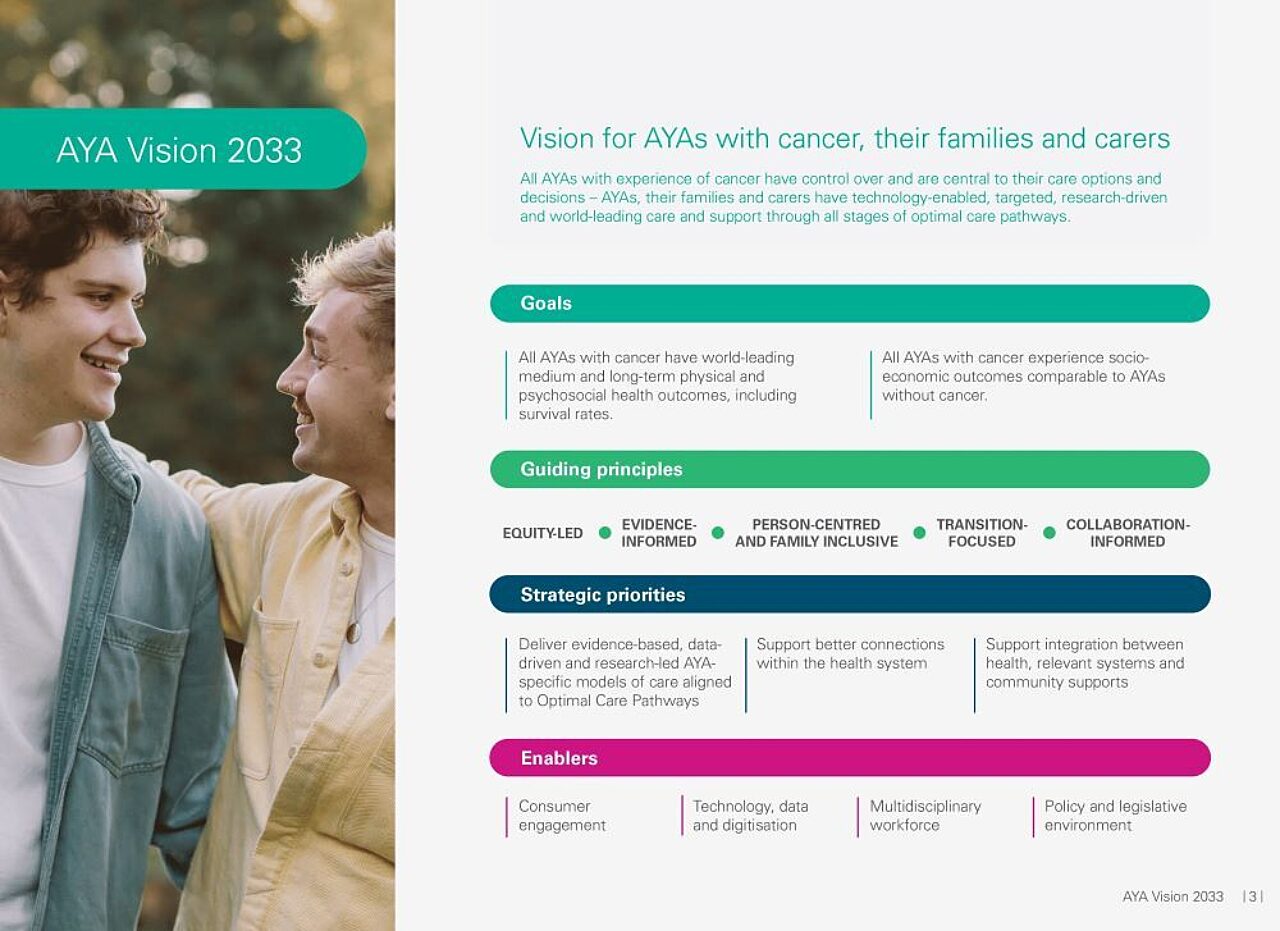Canteen is an Australian not-for-profit organisation that provides free and tailored support to people aged 12-25 who are impacted by cancer, whether they are dealing with their own diagnosis, a close family member’s cancer, or the death of a loved one.
Despite treatment advances, not all young people receive optimal care
Each year, around a thousand adolescents and young adults (AYA) in Australia are diagnosed with cancer. Though cancer support and treatment have advanced significantly in recent years, AYAs with cancer continue to fare worse than other groups. They face unique survivorship challenges and do not always receive specific and developmentally appropriate care.
Canteen wanted to provide a new vision for the delivery of best-practice cancer care over the next 10 years – known as AYA Vision 2033 – which would build on the work driven by the 2017 Australia Youth Cancer Framework. It wanted to provide a strategy and action plan to achieve optimal care and support through all stages of cancer.
To develop a bold, ambitious and robust plan, Canteen knew that it was important to hear from AYAs with cancer, their families and carers, as well as governments, service providers, clinicians, academics and peak and representative bodies.
Canteen enlisted us to help develop AYA Vision 2033.
We developed an ambitious strategic vision that placed AYAs at its centre
Canteen wanted to develop a strategic document that provided a vision, goals, overarching principles and priorities to guide everyone providing care and support to AYAs with cancer, their families and carers.
From the outset, Canteen was clear this could not just be an organisational plan – to have the greatest impact, AYA Vision 2033 needed to bring all groups together to shape collective action across the sector.
We took several steps to create collective buy-in and ownership:
- We built from existing Canteen research – including a comprehensive literature review – and previous consultations with AYAS, subject-matter experts and policy makers.
- We led collaborative workshops with a National Reference Group (NRG) and Strategic Advisory Group (SAG), comprised of eminent experts from across Australia.
- We tested the core elements of AYA Vision 2033 with Youth Cancer Services (YCSs) across Australia, where a significant proportion of newly diagnosed AYA are treated and supported.
- We developed a communications plan to support Canteen to maintain strong relationships with key stakeholders.
AYA Vision 2033 provides a clear direction and a plan and pathway for the sector
This work informed the vision that guides AYA Vision 2033:
“All AYAs with experience of cancer have control over and are central to their care options and decisions – AYAs, their families and carers have technology-enabled, targeted, research driven and world-leading care and support through all stages of optimal care pathways.”
It then articulates two fundamental goals:
- All AYAs with cancer have world-leading medium and long-term physical and psychosocial health outcomes, including survival rates.
- All AYAs with cancer experience socio-economic outcomes comparable to AYAs without cancer.
AYA Vision 2033 goes on to identify three strategic priorities and associated actions to guide the sector and support service delivery and care for AYAs with cancer, their families and carers. Actions have been provided on a two-, five- or 10-year timeframe. For each priority, we have spelled out what success looks like and the key metrics to watch. We have also identified the four system enablers needed to achieve the vision.
The AYA Vision 2033 was approved by the NRG and formally launched by the Minister for Health and Aged Care at the Youth Cancer Services (YCS) National Youth Cancer Consumer Forum in August 2023.


What you can learn from this project
Best practice engagement includes iterative, inclusive and collaborative involvement of consumers, service providers, policy makers and governments.
Effective and ongoing stakeholder engagement creates ownership of the strategic direction, including local application.
Independent facilitation is often crucial for generating buy-in and agreement.



